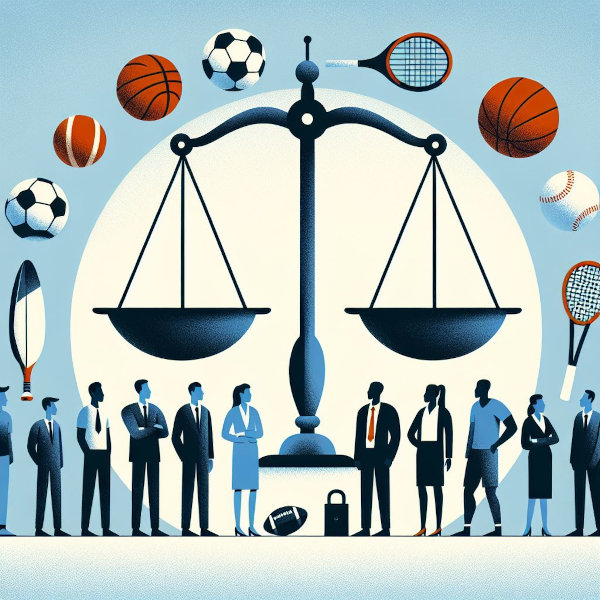Sports Mediation: An alternative form of sports disputes resolution

- Sport is big business: worth more than 3 per cent of world trade.
- So, there is much to play for, in financial as well as sporting terms.
- Not surprisingly sports disputes are on the increase.
- However, the sporting world prefers not to ‘wash its dirty linen in public’ but to settle disputes ‘within the family of sport’.
- In other words, by some form of alternative dispute resolution (ADR). That is, without the intervention of a Judge, but with, for example, the assistance of a Mediator.
Mediation
One form of ADR particularly suited to the settlement of sports disputes is Mediation: an informal and ‘without prejudice’ process, in which an independent Mediator assists the parties in dispute to reach a settlement outside the courts’ system.
The Court of Arbitration for Sport (CAS), in addition to its arbitration service, introduced in 1999 a mediation service for the settlement of sports-related disputes, which is steadily growing in popularity.
Other independent bodies offer mediation services, including CEDR (Centre for Effective Dispute Resolution), which is based in London, United Kingdom.
Mediation Advantages
- Mediation is quick – it can be arranged within days or weeks, rather than months or years as in the case of litigation and can also be conducted in a very short time. For example, the Richie Woodhall/Frank Warren dispute, which was settled within 72 hours.
- It is less expensive – quick settlements save management time and legal costs.
- It is confidential – adverse publicity is avoided and unwanted parties, such as competitors or journalists, are not present.
- It covers wider issues, interest and needs – underlying issues and hidden agendas are exposed making creative solutions possible to satisfy the needs of all the parties.
- It is informal – a commonsense and straightforward negotiation results.
- It allows the parties to retain control – the parties make the decisions rather than control being handed over to a judge or an arbitrator.
- It is entirely ‘without prejudice’ – the parties have nothing to lose, their rights are not affected by the mediation, thus litigation can be commenced or continued if the mediation fails to produce an agreed settlement.
In a nutshell:
“Mediation differs from other alternative dispute resolution methods….. because the outcome or solution is not imposed. It has to be concluded voluntarily by the parties on either side. The mediator facilitates by evaluating the dispute and proposing solutions, but does not make a judgment…… This means the parties own the outcome, it is their problem but also their solution, therefore they are more likely to get an outcome that they can live with.”
– Sam Passow, Head of Research at CEDR (Centre for Effective Dispute Resolution) London.
Note:
Mediation will only be successful, if the parties are willing to settle their disputes amicably and make some compromises and concessions.
Conclusions
- Mediation is proving to be a useful form of ADR to resolve sports-related disputes.
- Indeed, the courts generally favour mediation in appropriate cases.
- The CAS and other bodies, such as CEDR, both mentioned above, offer mediation services, which are quick, inexpensive and effective.
For further information about our Sports Mediation professional services, including acting as Mediators, please contact our International Sports Law Consultant, Prof Dr Ian Blackshaw, who is an experienced CAS and International Mediator, by e-mailing him at ‘blackshaw@valloni.ch’